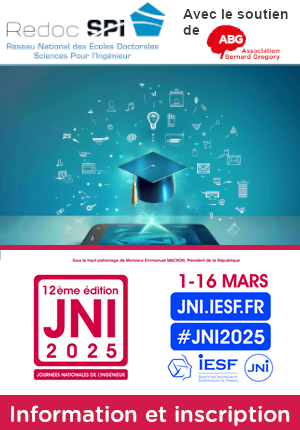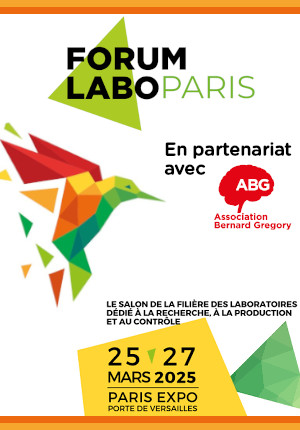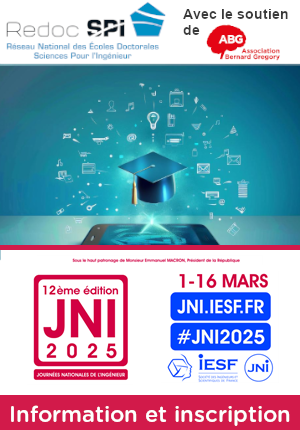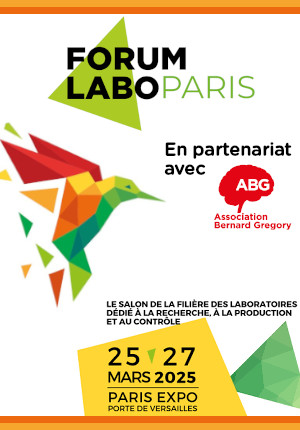Implémentation matérielle/logicielle sécurisée et agile des nouveaux algorithmes de signature numérique en cryptographie post-quantique // Secure and Agile Hardware/Software Implementation of new Post-Quantum Cryptography Digital Signature Algorithms
| ABG-127815 | Thesis topic | |
| 2025-01-08 | Public/private mixed funding |
CEA Université Grenoble Alpes Laboratoire de Sécurité des COmposants
Grenoble
Implémentation matérielle/logicielle sécurisée et agile des nouveaux algorithmes de signature numérique en cryptographie post-quantique // Secure and Agile Hardware/Software Implementation of new Post-Quantum Cryptography Digital Signature Algorithms
- Computer science
Informatique et logiciels / Sciences pour l’ingénieur / Electronique et microélectronique - Optoélectronique / Sciences pour l’ingénieur
Topic description
La cryptographie joue un rôle fondamental dans la sécurisation des systèmes de communication modernes en garantissant la confidentialité, l'intégrité et l'authenticité. La cryptographie à clé publique, en particulier, est devenue indispensable pour sécuriser les processus d’échange de données et d’authentification. Cependant, l’avènement de l’informatique quantique constitue une menace pour de nombreux algorithmes cryptographiques à clé publique traditionnels, tels que RSA, DSA et ECC, qui reposent sur des problèmes tels que la factorisation entière et les logarithmes discrets que les ordinateurs quantiques peuvent résoudre efficacement. Conscient de ce défi imminent, le National Institute of Standards and Technology (NIST) a lancé en 2016 un effort mondial pour développer et normaliser la cryptographie post-quantique (PQC). Après trois rondes d'évaluations, le NIST a annoncé son premier ensemble d'algorithmes standardisés en 2022. Bien que ces algorithmes représentent un progrès significatif, le NIST a exprimé un besoin explicite de cryptosystèmes supplémentaires qui exploitent des hypothèses de sécurité alternatives et a ouvert un nouveau concours dédié aux nouvelles signatures.
À mesure que la communauté cryptographique s’oriente vers l’adoption de cette nouvelle cryptographie, un défi majeur réside dans leur déploiement efficace dans des systèmes réels. Les implémentations matérielles, en particulier, doivent répondre à des exigences strictes en matière de performances, de consommation d'énergie et de coût, tout en offrant la flexibilité nécessaire pour s'adapter à plusieurs algorithmes, qu'ils soient standardisés ou encore en cours d'évaluation. Une telle agilité est essentielle pour pérenniser les systèmes face à l’incertitude inhérente aux transitions cryptographiques. L'objectif principal de cette thèse sera de concevoir et de développer des implémentations matérielles agiles pour des algorithmes de signature numérique post-quantique. Cela implique une étude approfondie des principaux candidats du quatrième tour du concours du NIST, ainsi que de ceux déjà standardisés, afin de comprendre leurs formalismes, leurs propriétés de sécurité et leurs bottlenecks. La thèse explorera également les optimisations pour l'efficacité des ressources, en équilibrant les compromis entre performances, consommation d'énergie et surface. De plus, la résilience contre les attaques physiques (attaques par canaux cachés et par injection de fautes) sera un élément clé du processus de conception.
Ce projet de thèse sera mené au sein du projet PEPR PQ-TLS en collaboration avec le laboratoire TIMA (Grenoble), l'Agence nationale de la sécurité des systèmes d'information (ANSSI) et l'INRIA.
------------------------------------------------------------------------------------------------------------------------------------------------------------------------
------------------------------------------------------------------------------------------------------------------------------------------------------------------------
Cryptography plays a fundamental role in securing modern communication systems by ensuring confidentiality, integrity, and authenticity. Public-key cryptography, in particular, has become indispensable for secure data exchange and authentication processes. However, the advent of quantum computing poses an existential threat to many of the traditional public-key cryptographic algorithms, such as RSA, DSA, and ECC, which rely on problems like integer factorization and discrete logarithms that quantum computers can solve efficiently. Recognizing this imminent challenge, the National Institute of Standards and Technology (NIST) initiated in 2016 a global effort to develop and standardize Post-Quantum Cryptography (PQC). After three rigorous rounds of evaluation, NIST announced its first set of standardized algorithms in 2022. While these algorithms represent significant progress, NIST has expressed an explicit need for additional digital signature schemes that leverage alternative security assumptions, emphasizing the importance of schemes that offer shorter signatures and faster verification times to enhance practical applicability in resource-constrained environments. Building on this foundation, NIST opened a new competition to identify additional general-purpose signature schemes. The second-round candidates, announced in October 2024, reflect a diverse array of cryptographic families.
This research focuses on the critical intersection of post-quantum digital signature algorithms and hardware implementations. As the cryptographic community moves toward adoption, the challenge lies not only in selecting robust algorithms but also in deploying them efficiently in real-world systems. Hardware implementations, in particular, must address stringent requirements for performance, power consumption, and security, while also providing the flexibility to adapt to multiple algorithms—both those standardized and those still under evaluation. Such agility is essential to future-proof systems against the uncertainty inherent in cryptographic transitions. The primary objective of this PhD research is to design and develop hardware-agile implementations for post-quantum digital signature algorithms. The focus will be on supporting multiple algorithms within a unified hardware framework, enabling seamless adaptability to the diverse needs of evolving cryptographic standards. This involves an in-depth study of the leading candidates from NIST’s fourth-round competition, as well as those already standardized, to understand their unique computational requirements and security properties. Special attention will be given to designing modular architectures that can support different signatures, ensuring versatility and extensibility. The proposed research will also explore optimizations for resource efficiency, balancing trade-offs between performance, power consumption, and area utilization. Additionally, resilience against physical attacks (side-channel attacks and fault injection attacks) will be a key consideration in the design process. This PhD project will be conducted within the PEPR PQ-TLS project in collaboration with the TIMA laboratory (Grenoble), the Agence nationale de la sécurité des systèmes d’information (ANSSI) and INRIA.
------------------------------------------------------------------------------------------------------------------------------------------------------------------------
------------------------------------------------------------------------------------------------------------------------------------------------------------------------
Pôle fr : Direction de la Recherche Technologique
Pôle en : Technological Research
Département : Département Systèmes (LETI)
Service : Service Sécurité des Systèmes Electroniques et des Composants
Laboratoire : Laboratoire de Sécurité des COmposants
Ecole doctorale : Electronique, Electrotechnique, Automatique, Traitement du Signal (EEATS)
Directeur de thèse : DI NATALE Giorgio
Organisme : Grenoble INP
Laboratoire : TIMA - CNRS / Université Grenoble-Alpes / Grenoble INP Département Microelectronique
À mesure que la communauté cryptographique s’oriente vers l’adoption de cette nouvelle cryptographie, un défi majeur réside dans leur déploiement efficace dans des systèmes réels. Les implémentations matérielles, en particulier, doivent répondre à des exigences strictes en matière de performances, de consommation d'énergie et de coût, tout en offrant la flexibilité nécessaire pour s'adapter à plusieurs algorithmes, qu'ils soient standardisés ou encore en cours d'évaluation. Une telle agilité est essentielle pour pérenniser les systèmes face à l’incertitude inhérente aux transitions cryptographiques. L'objectif principal de cette thèse sera de concevoir et de développer des implémentations matérielles agiles pour des algorithmes de signature numérique post-quantique. Cela implique une étude approfondie des principaux candidats du quatrième tour du concours du NIST, ainsi que de ceux déjà standardisés, afin de comprendre leurs formalismes, leurs propriétés de sécurité et leurs bottlenecks. La thèse explorera également les optimisations pour l'efficacité des ressources, en équilibrant les compromis entre performances, consommation d'énergie et surface. De plus, la résilience contre les attaques physiques (attaques par canaux cachés et par injection de fautes) sera un élément clé du processus de conception.
Ce projet de thèse sera mené au sein du projet PEPR PQ-TLS en collaboration avec le laboratoire TIMA (Grenoble), l'Agence nationale de la sécurité des systèmes d'information (ANSSI) et l'INRIA.
------------------------------------------------------------------------------------------------------------------------------------------------------------------------
------------------------------------------------------------------------------------------------------------------------------------------------------------------------
Cryptography plays a fundamental role in securing modern communication systems by ensuring confidentiality, integrity, and authenticity. Public-key cryptography, in particular, has become indispensable for secure data exchange and authentication processes. However, the advent of quantum computing poses an existential threat to many of the traditional public-key cryptographic algorithms, such as RSA, DSA, and ECC, which rely on problems like integer factorization and discrete logarithms that quantum computers can solve efficiently. Recognizing this imminent challenge, the National Institute of Standards and Technology (NIST) initiated in 2016 a global effort to develop and standardize Post-Quantum Cryptography (PQC). After three rigorous rounds of evaluation, NIST announced its first set of standardized algorithms in 2022. While these algorithms represent significant progress, NIST has expressed an explicit need for additional digital signature schemes that leverage alternative security assumptions, emphasizing the importance of schemes that offer shorter signatures and faster verification times to enhance practical applicability in resource-constrained environments. Building on this foundation, NIST opened a new competition to identify additional general-purpose signature schemes. The second-round candidates, announced in October 2024, reflect a diverse array of cryptographic families.
This research focuses on the critical intersection of post-quantum digital signature algorithms and hardware implementations. As the cryptographic community moves toward adoption, the challenge lies not only in selecting robust algorithms but also in deploying them efficiently in real-world systems. Hardware implementations, in particular, must address stringent requirements for performance, power consumption, and security, while also providing the flexibility to adapt to multiple algorithms—both those standardized and those still under evaluation. Such agility is essential to future-proof systems against the uncertainty inherent in cryptographic transitions. The primary objective of this PhD research is to design and develop hardware-agile implementations for post-quantum digital signature algorithms. The focus will be on supporting multiple algorithms within a unified hardware framework, enabling seamless adaptability to the diverse needs of evolving cryptographic standards. This involves an in-depth study of the leading candidates from NIST’s fourth-round competition, as well as those already standardized, to understand their unique computational requirements and security properties. Special attention will be given to designing modular architectures that can support different signatures, ensuring versatility and extensibility. The proposed research will also explore optimizations for resource efficiency, balancing trade-offs between performance, power consumption, and area utilization. Additionally, resilience against physical attacks (side-channel attacks and fault injection attacks) will be a key consideration in the design process. This PhD project will be conducted within the PEPR PQ-TLS project in collaboration with the TIMA laboratory (Grenoble), the Agence nationale de la sécurité des systèmes d’information (ANSSI) and INRIA.
------------------------------------------------------------------------------------------------------------------------------------------------------------------------
------------------------------------------------------------------------------------------------------------------------------------------------------------------------
Pôle fr : Direction de la Recherche Technologique
Pôle en : Technological Research
Département : Département Systèmes (LETI)
Service : Service Sécurité des Systèmes Electroniques et des Composants
Laboratoire : Laboratoire de Sécurité des COmposants
Ecole doctorale : Electronique, Electrotechnique, Automatique, Traitement du Signal (EEATS)
Directeur de thèse : DI NATALE Giorgio
Organisme : Grenoble INP
Laboratoire : TIMA - CNRS / Université Grenoble-Alpes / Grenoble INP Département Microelectronique
Funding category
Public/private mixed funding
Funding further details
Presentation of host institution and host laboratory
CEA Université Grenoble Alpes Laboratoire de Sécurité des COmposants
Pôle fr : Direction de la Recherche Technologique
Pôle en : Technological Research
Département : Département Systèmes (LETI)
Service : Service Sécurité des Systèmes Electroniques et des Composants
Candidate's profile
Apply
Close
Vous avez déjà un compte ?
Nouvel utilisateur ?
More information about ABG?
Get ABG’s monthly newsletters including news, job offers, grants & fellowships and a selection of relevant events…
Discover our members
 Nokia Bell Labs France
Nokia Bell Labs France  ADEME
ADEME  ANRT
ANRT  PhDOOC
PhDOOC  CESI
CESI  Laboratoire National de Métrologie et d'Essais - LNE
Laboratoire National de Métrologie et d'Essais - LNE  Groupe AFNOR - Association française de normalisation
Groupe AFNOR - Association française de normalisation  SUEZ
SUEZ  MabDesign
MabDesign  ASNR - Autorité de sûreté nucléaire et de radioprotection - Siège
ASNR - Autorité de sûreté nucléaire et de radioprotection - Siège  ONERA - The French Aerospace Lab
ONERA - The French Aerospace Lab  MabDesign
MabDesign  TotalEnergies
TotalEnergies  CASDEN
CASDEN  Généthon
Généthon  Institut Sup'biotech de Paris
Institut Sup'biotech de Paris  Tecknowmetrix
Tecknowmetrix  Ifremer
Ifremer  Aérocentre, Pôle d'excellence régional
Aérocentre, Pôle d'excellence régional
-
JobPermanentRef. ABG129192Association Bernard Gregory (ABG)Paris (3ème) - Ile-de-France - France

Business Developer (F/H)
Open to all scientific expertisesAny -
JobPermanentRef. ABG128844Institut National de Recherche et Sécurité- Grand Est - France

Chercheur en psychologie appliquée au travail et aux risques psychosociaux (H/F)
Psychology, neurosciencesConfirmed -
JobPermanentRef. ABG129119Aguaro- Pays de la Loire - France

Docteur·e Data Environnement
Ecology, environmentJunior











